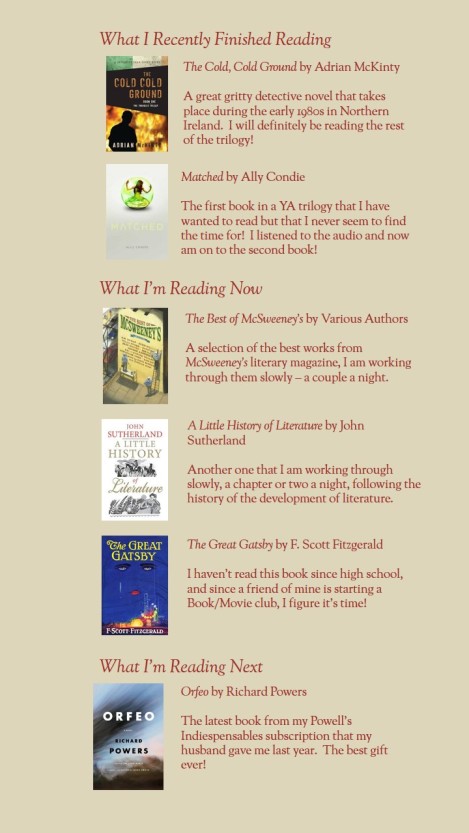 The Signature of All Things is epic in scope as it spans the life of Henry Whittaker from a thieving child to the wealthiest man in Philadelphia and the long life of his daughter Alma. The story also travels the globe, from England and America and Amsterdam to Tahiti and the jungles of the world. It addresses topics as varied as botany, masturbation, insanity, homosexuality, religion, sacrifice, abolition and family relationships. In spite of its large and beautiful scope, at its core it’s the story of Alma, a lonely woman struggling to know and be known. Unfortunately for Alma, she was born an unattractive woman with far too much intellectual curiosity for the age. Desiring love, she instead spends much of her life being content in taking care of her father and his estate while she studies mosses. Ultimately travelling the globe in the desire to understand, she finally finds what she seeks, but not in the way in which we’ve come to expect. Romance is not to be in her cards, but she can finally be known and loved instead for her mind, for her knowledge and brilliant insights. The book is very lyrical, the words seem to sing, making it an enjoyable and engrossing read. There are parts of the middle of the book that are almost too odd, but I powered through them, still anxious to find out what happened to Alma and whether she would find what she sought.
The Signature of All Things is epic in scope as it spans the life of Henry Whittaker from a thieving child to the wealthiest man in Philadelphia and the long life of his daughter Alma. The story also travels the globe, from England and America and Amsterdam to Tahiti and the jungles of the world. It addresses topics as varied as botany, masturbation, insanity, homosexuality, religion, sacrifice, abolition and family relationships. In spite of its large and beautiful scope, at its core it’s the story of Alma, a lonely woman struggling to know and be known. Unfortunately for Alma, she was born an unattractive woman with far too much intellectual curiosity for the age. Desiring love, she instead spends much of her life being content in taking care of her father and his estate while she studies mosses. Ultimately travelling the globe in the desire to understand, she finally finds what she seeks, but not in the way in which we’ve come to expect. Romance is not to be in her cards, but she can finally be known and loved instead for her mind, for her knowledge and brilliant insights. The book is very lyrical, the words seem to sing, making it an enjoyable and engrossing read. There are parts of the middle of the book that are almost too odd, but I powered through them, still anxious to find out what happened to Alma and whether she would find what she sought.
“You see, I have never felt the need to invent a world beyond this world, for this world has always seemed large and beautiful enough for me. I have wondered why it is not large and beautiful enough for others– why they must dream up new and marvelous spheres, or long to live elsewhere, beyond this dominion… but that is not my business. We are all different, I suppose. All I ever wanted was to know this world. I can say now, as I reach my end, that I know quite a bit more of it than I knew when I arrived. Moreover, my little bit of knowledge has been added to all the other accumulated knowledge of history– added to the great library, as it were. That is no small feat, sir. Anyone who can say such a thing has lived a fortunate life.”
Title: The Signature of All Things Author: Elizabeth Gilbert Genre: Fiction Pages: 512 Publication: Viking Adult, October 2013







